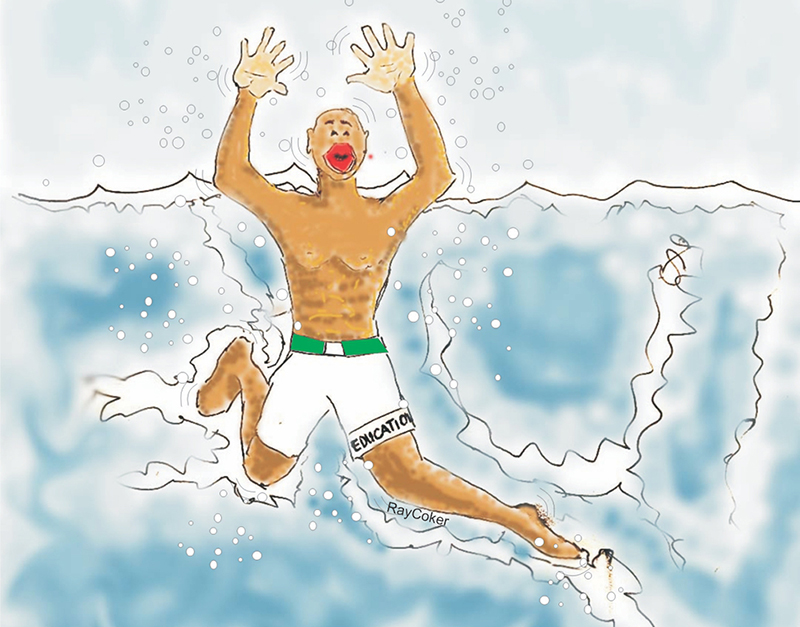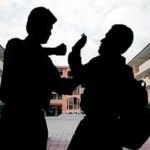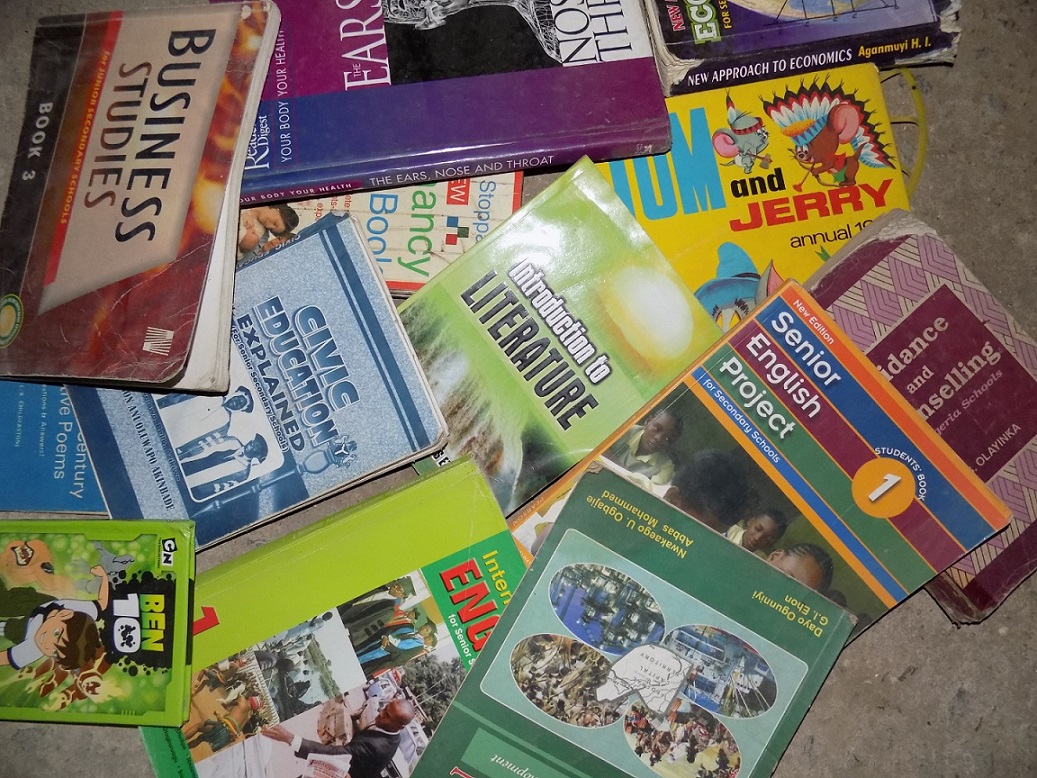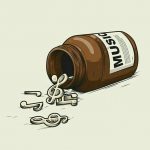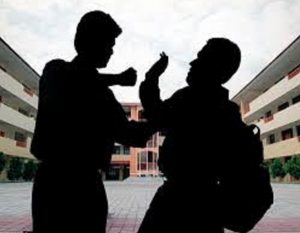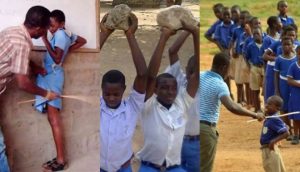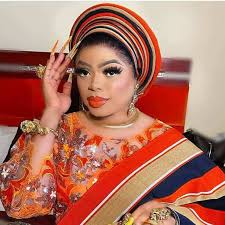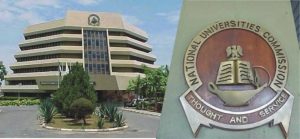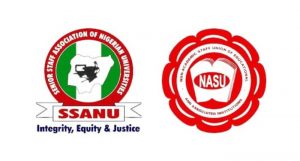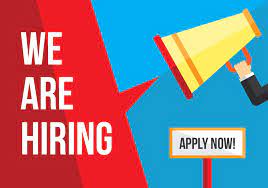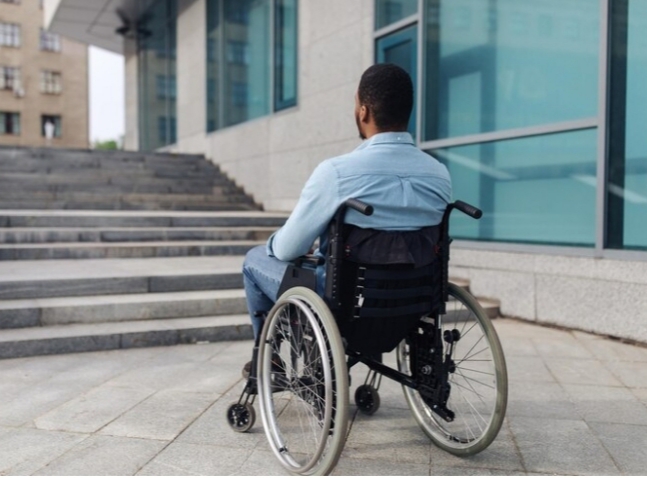
Person Living With Disability.
Persons with disability in Nigeria persistently face stigma, discrimination, and barriers to accessing basic social services and economic opportunities.
These barriers are not just set by outsiders, but also by people who are close to them, their family members, and indeed the general public.
Some parents hide their disabled children from the public and this makes things worse for the children.
A person with a disability is one with long-term physical, mental, intellectual, or sensory impairment which, in interaction with barriers, hinders his full and effective participation in society equally with others. Barriers such as non-inclusion in some key aspects of society.
As a result, they do not enjoy access on an equal basis as others which includes areas such as transportation and employment but also social participation like politics or entertainment, not minding that physically challenged persons over the years have excelled in various areas of human endeavour including sports, the academia, art, music, business, and even philanthropy.
More often than not, when a typical Nigerian comes across a physically challenged person, the first impression on his mind is that of a person who is bound to dependence for survival.
And they show this by sometimes arrogantly offering alms, not minding that some of these disabled persons carry greater responsibilities in their homes.
There is so much ignorance about People living with Disability (PLWD ) and that anyone could become disabled at any point in life, ranging from old age, accident, health, and other vicissitude of life.
People living with disability in Nigeria got an unusual focus in the media in the past week when Debola Daniel, son of former governor of Ogun State, Gbenga Daniel narrated how he was humiliated at a KFC outlet, a fast-food joint, at the Murtala Muhammed Airport, Lagos due to his disability. This enraged the public and sparked reactions.
The government of Nigeria has taken some steps to address the needs of persons with disability. One significant step came in January 2019 with the ratification of the Discrimination against Persons with Disability (Prohibition) Act 2018, though the implementation is not total.
Only thirteen states out of 36 in the Federation have domesticated disability laws to safeguard the rights of persons with disabilities to varying degrees of implementation.
The Act criminalizes the act of discrimination against a person with disabilities; it is an offence liable upon conviction, to six months imprisonment or a fine of ₦100,000 (One Hundred Thousand Naira) or both for an individual.
For a body corporate, it will be liable upon conviction to a fine of ₦1,000,000 (One Million Naira) 4. Notably, whilst the Act criminalizes the discrimination of disabled persons, it allows the victim of the discriminative act to institute a civil action against the offender without prejudice to any acquittal or conviction.
Barriers
According to the World Health Organization’s 2011 World Disability Report, about 15 percent of Nigeria’s population, or at least 25 million people, have a disability. There is a lack of inclusion in infrastructural planning is an issue. Their consideration is often an afterthought.
To alleviate the sufferings of PLWD and make them contribute to the growth of the country, governments in all tiers must be intentional in their policies and programmes for disabled citizens.
Most offices, shopping malls, banks, and other public buildings are erected with little or no consideration for the mobility of impaired members of society.
Most banks in Nigeria do not make provision for those in wheelchairs at their entrances. Automated Teller Machines, ATMs, in banks are also built in such a way that those on wheelchairs cannot access them.
Policymakers and decision-makers must treat disability as a development issue that requires enhanced data on PLWD and make a concerted effort to raise awareness surrounding disability issues to change the negative perceptions and stigma against persons with disabilities among families and communities.
PLWD face difficulties accessing adequate health services, often being limited by the availability of accessible hospitals and personnel who are aware of and are specialized in disability inclusion and providing services for persons with disabilities.
In the area of education, many parents of PLWD cannot afford to get them enrolled in the few private special schools that cater to their needs and the system itself is not inclusive enough for the government to create more of these special schools with facilities like accessible infrastructure; learning materials, and adequate special education teacher.
Assistive devices like wheelchairs, glasses, prosthetic limbs, white canes, and hearing aids to digital solutions such as speech recognition or time management software and captioning are expensive and not easily available, which limits persons with disabilities.
In addition, many experience frequent denial of job opportunities due to employers’ negative attitudes, sometimes, the few lucky to be employed are not appropriately placed.
Most overhead bridges don’t have provision for disabled persons; roads are without walkways, thus subjecting the visually impaired to serious dangers.

Lagos State Government has been exemplary in its concern for people living with disabilities when compared to other states of the federation. Over the years, various administrations have taken steps to address the plight of people living with disabilities.
The Lagos State Office for Disability Affairs (LASODA) was established by the Lagos State Special People’s Law (LSSPL) in June 2011 and its first Board charged with implementing the Law was inaugurated by then Governor of Lagos State, Mr. Babatunde Raji Fashola on the 9th of July 2012.
After that, his successor, Mr Akinwunmi Ambode decentralized the Lagos State Office of Disability (LASODA) and absorbed 200 physically challenged persons to manage their affairs in all the Local Government Areas and Local Council Development Areas (LCDA) in the state.
To further reinforce its commitment towards the physically challenged, Bus Rapid Transit (BRT) and LAGBUS operators were mandated to offer them free rides across all routes and some of the BRT busses have facilities for the physically challenged.
The Lagos State Office for Disability Affairs was established following the passage of the law to uphold the rights of all persons living with any form of disability in Lagos State. It is meant to safeguard them against all forms of discrimination and give them equal rights and opportunities.
The management of People with Disabilities (PLWD) in Lagos state has received a tremendous boost, the result of initiatives and empowerment programmes put in place by successive governments to improve the socio-economic status of PLWD residing in the State.
The government has steadily employed and institutionalized empowerment strategies which have expanded the prospects of persons with disabilities in the State and expectedly changed the established perception or narrative of people seeing them as beggars to those with skills and attitudes to become wealth creators.
Also, in its bold bid to showcase its inclusive social development credentials, LASODA initiated the ‘Ability Expo’ as an annual event through which PLWD who are into various enterprises, especially those that produce goods and services, are allowed to showcase their businesses to the world.
Also, individuals, groups, institutions, and other stakeholders whose lines of business are disability-concern related are allowed to participate in the special exhibition.
To sustain ongoing efforts to improve the lots of PWD in the state, the state government has also given financial incentives and assistive devices distributed to clusters of PWD in the state like the Joint Association of Persons Living with Disability, National Association of Persons with Physical Disability (Lagos Chapter), Lagos State Association of the Deaf, National Association of the blind, Association of parents of children living with intellectual disability, Spinal cord injuries association of Nigeria (NSCIAN), Lagos Chapter, The Dwarf Association of Nigeria, Lagos State Chapter and Lagos State Albinism Society.
However, all this could be seen as a starting point as many of the concerned individuals feel there is a lot of room for improvement of the lot of disabled persons in the state.
Among these is the creation of more Government-run special schools that those who are indigent can send their special wards, the creation of more awareness about disabilities, and the enforcement of disability laws.
SOLUTIONS
It is in this light of the potential of many of these citizens that Governments at the various levels of governance in the country should domesticate the laws that cater to the needs of this sector of the country to make life more meaningful for People Living with Disability and making them add value to their respective domains.
Also, individuals, groups, and private organizations should be sensitized to adopt CSR programmes that will cater to the needs of PLWD. In one of her addresses, the General Manager of the Lagos State Office for Disability Affairs (LASODA), Mrs. Adenike Oyetunde-Lawal reiterated the willingness of the Agency to collaborate with organisations supporting the rights of Persons with Disabilities (PWDs).
According to Jake Epelle, the founder of Albino Foundation, Nigerians with albinism are on the verge of overcoming age-long social stigma and inequalities, thanks to the advocacy efforts of the United Nations and of his organisation which works to empower persons with albinism and educate society on albinism related issues in Nigeria and the world. However, albinos in the country still experience subtle taunts from people.
Furthermore, investments in inclusive employment and livelihood interventions are critical to addressing unemployment challenges among persons with disabilities.
These could include entrepreneurship training and business advisory services, as well as the promotion of locally produced assistive devices and accessible workplaces.
Disability-focused organizations in Nigeria should be empowered to support this process and provide services to persons with disabilities and caregivers.
Government in conjunction with parents of special needs children, particularly those with Cerebral Palsy should be encouraged to invest in their children’s futures by providing them with high-quality education, such that would ensure them a dignified life in the future.
In the words of Mrs. Bola Abidemi, a special education teacher, “Education, both formal and informal, plays significant roles in the life of every child; it prepares them for a future of dignity and self-worth which contribute to their future quality of life. Parents must, therefore, desist from keeping their ‘special’ children at home and denying them a brighter future.”
According to Mr. Titus Ekong, “Most offices, shopping malls, banks, and other public buildings are erected with little or no consideration for mobility for wheelchair users or assistance for the visually impaired members of society.
Automated Teller Machines, ATMs, in banks are built in such a way that those on wheelchairs cannot access them. This is despite a law, which recognizes and preaches that all people be treated equally, regardless of their physical state”.
Nigeria’s goal of lifting 100 million Nigerians out of poverty by 2029, in addition to achieving inclusive economic growth, will be a mirage without the inclusion of persons with disability.
Overall, the emphasis should be on full “inclusion” within the community. On the national scale, we must put in place a National Disability Rights Commission with a commitment to people living with deformities to attain their God-given potential, give them a sense of belonging, and allow them to contribute in their way to national progress.
Kindly like, comment, follow, and share.


